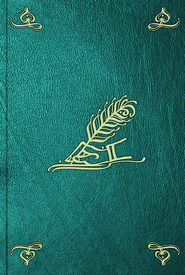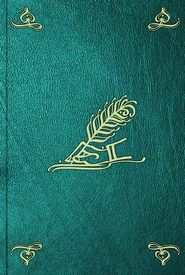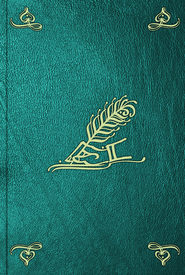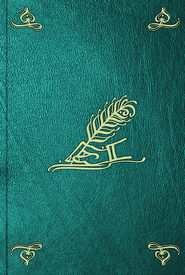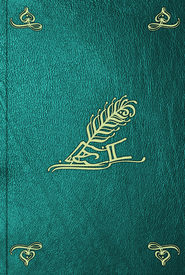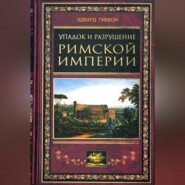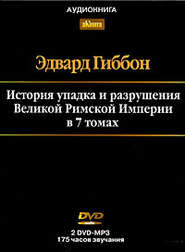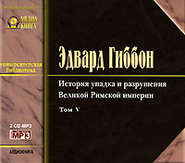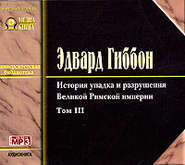По всем вопросам обращайтесь на: info@litportal.ru
(©) 2003-2025.
✖
Private Letters of Edward Gibbon (1753-1794) Volume 1 (of 2)
Настройки чтения
Размер шрифта
Высота строк
Поля
The sickness of Naples seems pretty well over. I shall not however yet venture to it. The concern you and Mrs. Gibbon express in her last letter, makes it my duty to avoid the appearance as well as the reality of danger. If I allow about three months to Rome, a month to Naples, and a fortnight or three weeks to the road, &c., visiting again some of the most curious things upon my return, I shall have but few idle moments, and yet shall hardly be able to take my last leave of Rome before the end of February. About six weeks may do for Bologna, Verona, &c., and Venice, and towards the middle or end of April I hope to have finished a tour attended with the greatest pleasure, and I flatter myself with some improvement. I shall then be ready, Dear Sir, to obey your orders with regard to the time and manner of my returning to England. The grand tour of Germany I do not even think of, as I am sensible of the considerable and unavoidable expence it would be attended with. The route thro' Bavaria to the Rhine and Low Countries, or that of the south of France to the same parts, would have their several advantages and might each employ about two months. However from the great extent of country I must pass thro' so rapidly, they would not be without an addition of expence. Believe me, Dear Sir, that is a consideration I feel so often and so sensibly; that rather than any thing should disturb the pleasure of our meeting, I will come down from Venice to Leghorn and embark for England. Satisfied with the enjoyment of Italy and France, I will rather reflect upon what I shall have seen than upon what I shall have lost. I wait, Dear Sir, for your directions. I have asked for them rather soon, both to unburthen my mind, and because we are neither of us the most exact Correspondents. I have a hundred more things to say. I would thank Mrs. Gibbon for the agreable news she sent me in her last letter of your having entirely got over your late indisposition, but my paper is out and I can only add that I am and ever shall be,
Dear Sir,
Most sincerely yours,
E. Gibbon, Junior. May I add Major?
39.
To his Father
Rome, November the 10th, 1764.
Dear Sir,
MONEY TROUBLES.
I received last Wednesday your letter of the 16th of October, and could scarcely have thought that any one from you could give me so much uneasiness as this has done. I have let slip one post in order to consider it with more attention, and I believe I must visit again every thing I have seen, or seemed to see, in the intermediate days. I must own, Dear Sir, that I am frightened both when I look back, and when I look forwards. A mortgage of £10,000 contracted about six years ago, £1200 taken out of Hervey's hands; and now an urgent necessity of selling one of our very best estates! Where must this end? Believe me, Dear Sir, I am very far from meaning the smallest reproach. I am convinced that all these measures have been dictated by necessity, and that this necessity has been occasioned by the intricacy of affairs, the iniquity of men, and a variety of accidents over which prudence has no power. But this very conviction encreases my uneasiness. What may be one day my fate without half your knowledge of business, and deprived of all those ressources which you must have found in living so many years in the Country, and in managing and improving your estate? With less æconomy and perhaps more wants, I may very easily find my way to a Gaol.
Notwithstanding all this, Dear Sir, I am very sensible of the unhappy difficulties of Otway's affair, and both duty and inclination would engage me to submit to every thing in order to extricate you from it. But for a sum which is not very considerable, will it be necessary to sell an Estate which I have heard you often speak of as the clearest and most valuable you are in possession of? If it is absolutely necessary to sell something, would it not be better to endeavour to part with Putney? I speak, Dear Sir, very much at random for want of knowing the respective values of the Estates, and what you are offered for Lenborough.[Footnote_83_83 - The Manor and Mansion-house of Lenborough, in the county of Bucks, passed, by purchase from the families of Ingoldsby and Dormer, into the hands of Mr. John Rogers, of Buckingham, who, about the year 1730, sold them to the grandfather of Edward Gibbon. The "Mansion" was converted into a farmhouse for the tenant of the farm.] Indeed without some such knowledge I can scarcely say anything positive upon the subject; more than that, if you still persist in that scheme, it would be very difficult for me to dispute any thing that you think expedient, or conducive to your own ease and happiness.
But in that case, Dear Sir, should you think the following conditions unreasonable? – 1st. That upon the sale of the estate, after discharging the mortgage and deducting £1200 for Otway's affair, the residue of the money should be paid into a banker's hands and be lodged in the funds in our joint names. The interests should be solely yours, and we should have what we have so often desired, a sum of money ready for any emergency, and sufficient to execute any plan, either of bringing me into Parliament, or any thing else. Surely, Dear Sir, this scheme is preferable to purchasing more land. Have not we enough already? The only thing that hurts me in this proposal is the air of distrust it seems to carry with it. Believe me, Dear Sir, when I say that I can as little doubt of your care and regard for me as of my own, and that if I take any precautions, they are such only, as I should think it equally prudent to take against myself. My other condition would be the same which I mentioned last year, that of changing my annuity into a rent charge upon the estate, and permitting me to convert that into another annuity which I apprehend would be at least double what I at present enjoy. I have often considered it coolly since that time, and a scheme which would make me easy and happy for life, appears to me much more eligible than any other which would make a small addition to my income at your expence. Marriage, and the consideration of posterity would be the only motives which could ever make me repent of such a step, and against these my circumstances, my constitution and a way of thinking grounded upon reasoning and strengthened by experience and habit, will I hope effectually secure me. My views will never extend beyond the happiness of your life, that of Mrs. Gibbon's and of my own. Let us mutually consult what may the most contribute towards that object without calculating what estate may at last remain for the Elliots.[Footnote_84_84 - The grandfather of Edward Gibbon died in 1736, leaving one son and two daughters. Catherine, the eldest of these two daughters, married Mr. Elliston, of South Weald, Essex, and her only child married, in 1756, Mr. (created in 1784 Lord) Eliot, of Port Eliot in Cornwall. Their three sons were Gibbon's nearest male relatives.]
I hope you will excuse, Dear Sir, the warmth [with] which I have expressed myself on a subject so highly interesting to us both. I am sure I have not wrote a line that has not been dictated by those sentiments of respect, duty and gratitude upon which you have so many claims, and which will always engage to place your ease and happiness upon a level with my own. I shall wait your order as to the time and manner of my coming home; but I hope you will not insist upon it's being before the month of June.
I am, Dear Sir,
Most sincerely and most affectionately yours, E. G.
40.
To his Father
Rome, December the 5th, 1764.
Dear Sir,
HIS CREDIT WITHDRAWN.
This moment to my great surprize, Barazzi, the banker of Rome, sent for me to shew me a letter he had just received from the banker at Lausanne, who had given me my general credit all over Italy, to recall that credit and to desire he would give me no more money. This can be only owing to the last draught from Florence having been protested, and as the banker has probably sent the same advice to his other correspondents, my character is ruined in every great town in Italy, and what makes it more unfortunate is the draught I gave from hence about a week ago for £100 more at twenty days' sight; which will probably have the same fate. I feel my situation the more as I am not conscious of having deserved it by distressing you with extravagant draughts. After a mature deliberation you fixed upon 700 pounds for my tour of Italy. I have always advised you regularly before I drew, and I have never, Dear Sir, exceeded my proportion of the sum. To what then am I to attribute this unforeseen misfortune? In your last letter you say nothing, and yet you must have then received mine from Florence. Forgive my warmth, Dear Sir, I scarce know what to think, write, or do.
I shall wait with the utmost impatience for an answer. Indeed I shall be very uneasy till it comes. Barazzi, who was very civil upon the occasion, desires if you send me credit upon any other banker (which will be absolutely necessary) that you would apply to Andrew Drummond whom he corresponds with. Till then it will be impossible for me to stir from Rome, or to live with much pleasure in it, while I know there are people who may very naturally suspect me of being a rogue or an adventurer. Once more, Dear Sir, forgive a man who scarce knows what he writes, and believe me ever
Most sincerely yours,
E. G.
I beg, Dear Sir, a speedy answer.
41.
To his Father
Rome, the 5th of December, 1764.
Dear Sir,
Since I sent my letter, which is already sealed up in Barazzi's packet, I have considered that the new credit which it will be necessary to send me must be given by the London Banker upon the other towns I am to go to, as well as upon Rome; at least upon Naples, Bologna, Venice, and one or two principal places in France or Germany according as you intend I should come home. After so unfortunate an accident I can scarce hope Barazzi himself will give me any credit elsewhere; and I must be the more exact, as in several of those places I shall find the bankers prepossessed against me by the letter of the Lausanne banker which must have been circular. How can it have happened, Dear Sir, that a letter can have had the time to go from London to Florence, from Florence to Lausanne, and from Lausanne to Rome without my having had the smallest intimation of it from you?
I am, Dear Sir, once more
Most truly yours,
E. G.
42.
To his Stepmother
Naples, January the 29th, 1765.
Dear Madam,
NAPLES.
I am very sorry for the reason (it is really no excuse) which I have had for my late dilatoriness in writing. I have waited with great impatience for an answer to the letters I had wrote my father, have always hoped and imagined that I could scarce fail of receiving it the very next post, and living in that daily expectation have suffered several posts to elapse without writing myself. Indeed I begin to fear that some letters must have miscarried. I hope however to hear from my father very soon, since if I should return to Rome without having had any orders from him as to the time and manner of my returning home, I should find myself very much embarassed how to act.
We arrived here only last night, so that as yet I have seen nothing; not even the glorious prospect of the bay of Naples. A thick foggy cloudy day (for such weather have we sometimes even in this happy climate) hangs over it, and veils all its beauties. The journey from Rome has satisfied at least one species of a disagreable curiosity, that of being acquainted with the very worst roads in the universe. You are sometimes sunk in sloughs and sometimes racked and battered on the broken remains of the old Appian way, and when after a tedious day you at last arrive at the long desired inn, you soon wish for the moment of setting out again. Governor Ellis[Footnote_85_85 - Henry Ellis (1721-1806) wrote an account of an expedition in which he served to discover the North-West passage. His Voyage to Hudson's Bay, by the Dobbs Galley and California in the years 1746 and 1747, for Discovering a North-West Passage, was published in 1748. He was afterwards appointed successively Governor of Georgia and Nova Scotia.] who is here, a man famous for attempting the North West passage, and consequently acquainted with every species of hardship, declares that he had rather circumnavigate the Globe, than go from Rome to Naples. This single circumstance may convince you, Dear Madam, how just are the common but melancholy observations, of the wretched state of this fine country and of the misery of its idle and oppressed inhabitants. They are indeed painted in too lively colours to escape the notice of the most inatentive traveller, and so shocking as to excite the pity of the least feeling one. I will not repeat here, Dear Madam, my old and lazy maxim of saying little because I have a great deal to say, and of reserving every thing for your dressing Room. I assure you without flattery, that I am very impatient to see it. I cannot say whether you will find me improved in any thing else, but at least I think I am become a better Englishman, and that, without adopting the honest prejudices of a Hampshire farmer, I am reconciled to my own country, that I see many of its advantages better than I did, and that a more enlarged view has corrected many errors of my premature and partial observation.
We are at present in the midst of a most brilliant carnaval, and shall scarce be able to breath between balls, operas, Assemblies and dinners. I have not yet seen Mr. Hamilton our Minister,[Footnote_86_86 - Mr. (afterwards Sir William) Hamilton (1730-1803) was appointed Envoy at the Court of Naples in 1764. In September, 1791, he married, as his second wife, Amy Lyon, who as Emma Hamilton became famous.] but he is extremely liked by the English here, of whom most are our Roman or Florentine acquaintance. Our only Peer is Lord Berkely, with whom we are just going to dine. I imagine we shall be presented to the boy King next Sunday. It must be a most ridiculous farce of Majesty.
Will you be so good as to acquaint my father that I drew for £100 at twenty days' sight the morning I left Rome, and that not having time to write by that post I acquainted Mr. Darrel with it by a letter of four lines.
How superfluous is it, Dear Madam, to repeat my protestations of duty and affection to my father, of tenderness to yourself, or of real friendship, and my best wishes for your brothers.
E. G.
43.
To his Father
Rome, the 19th of March, 1765.
Dear Sir,
We are at last going to quit Rome, and altho' every reason for not writing much or often looks suspicious from an old offender like me, yet at present a laudable avarice of time makes me regret every moment I am not rambling about a place I am so soon to take my leave of.
I shall be obliged to draw (at as long a sight as I can) for two hundred pounds: not that I have run into any new expences I did not foresee before, but merely from a prudence which I think a proper one in the very nice situation into which the Florence affair has thrown me. I am sure I can have the money from Barazzi here, as Grand has renewed my credit upon him, but tho' I hope and believe he has done it equally upon the other Bankers, I am not at all sure of it, and might find myself exposed to the refusal of the banker at Venice, and without any acquaintance there who could vouch for my character and circumstances. As I hope to carry away a good £150 I am at least sure of getting to Genoa, where I have some previous knowledge of the banker, and where in case of any difficulty I could call on Celesia. I hope this precaution, which appeared to me in the light of a necessary one, will not be inconvenient to you. It shall make no alteration in the plan I laid down in my letters from Naples, and you may depend upon it, Dear Sir, that neither in point of time nor of money I will any ways exceed it.
I can scarce hope to receive any more letters from you, which reduces me to the necessity of chusing for myself. I shall however write to you, Dear Sir, from Bologna, Genoa, and one or two places in France to acquaint you with my motions till I have the pleasure before the end of June of embracing you and Mrs. Gibbon at Beriton.
I am, Dear Sir,
Most truly yours,
E. G.
Dear Sir,
Most sincerely yours,
E. Gibbon, Junior. May I add Major?
39.
To his Father
Rome, November the 10th, 1764.
Dear Sir,
MONEY TROUBLES.
I received last Wednesday your letter of the 16th of October, and could scarcely have thought that any one from you could give me so much uneasiness as this has done. I have let slip one post in order to consider it with more attention, and I believe I must visit again every thing I have seen, or seemed to see, in the intermediate days. I must own, Dear Sir, that I am frightened both when I look back, and when I look forwards. A mortgage of £10,000 contracted about six years ago, £1200 taken out of Hervey's hands; and now an urgent necessity of selling one of our very best estates! Where must this end? Believe me, Dear Sir, I am very far from meaning the smallest reproach. I am convinced that all these measures have been dictated by necessity, and that this necessity has been occasioned by the intricacy of affairs, the iniquity of men, and a variety of accidents over which prudence has no power. But this very conviction encreases my uneasiness. What may be one day my fate without half your knowledge of business, and deprived of all those ressources which you must have found in living so many years in the Country, and in managing and improving your estate? With less æconomy and perhaps more wants, I may very easily find my way to a Gaol.
Notwithstanding all this, Dear Sir, I am very sensible of the unhappy difficulties of Otway's affair, and both duty and inclination would engage me to submit to every thing in order to extricate you from it. But for a sum which is not very considerable, will it be necessary to sell an Estate which I have heard you often speak of as the clearest and most valuable you are in possession of? If it is absolutely necessary to sell something, would it not be better to endeavour to part with Putney? I speak, Dear Sir, very much at random for want of knowing the respective values of the Estates, and what you are offered for Lenborough.[Footnote_83_83 - The Manor and Mansion-house of Lenborough, in the county of Bucks, passed, by purchase from the families of Ingoldsby and Dormer, into the hands of Mr. John Rogers, of Buckingham, who, about the year 1730, sold them to the grandfather of Edward Gibbon. The "Mansion" was converted into a farmhouse for the tenant of the farm.] Indeed without some such knowledge I can scarcely say anything positive upon the subject; more than that, if you still persist in that scheme, it would be very difficult for me to dispute any thing that you think expedient, or conducive to your own ease and happiness.
But in that case, Dear Sir, should you think the following conditions unreasonable? – 1st. That upon the sale of the estate, after discharging the mortgage and deducting £1200 for Otway's affair, the residue of the money should be paid into a banker's hands and be lodged in the funds in our joint names. The interests should be solely yours, and we should have what we have so often desired, a sum of money ready for any emergency, and sufficient to execute any plan, either of bringing me into Parliament, or any thing else. Surely, Dear Sir, this scheme is preferable to purchasing more land. Have not we enough already? The only thing that hurts me in this proposal is the air of distrust it seems to carry with it. Believe me, Dear Sir, when I say that I can as little doubt of your care and regard for me as of my own, and that if I take any precautions, they are such only, as I should think it equally prudent to take against myself. My other condition would be the same which I mentioned last year, that of changing my annuity into a rent charge upon the estate, and permitting me to convert that into another annuity which I apprehend would be at least double what I at present enjoy. I have often considered it coolly since that time, and a scheme which would make me easy and happy for life, appears to me much more eligible than any other which would make a small addition to my income at your expence. Marriage, and the consideration of posterity would be the only motives which could ever make me repent of such a step, and against these my circumstances, my constitution and a way of thinking grounded upon reasoning and strengthened by experience and habit, will I hope effectually secure me. My views will never extend beyond the happiness of your life, that of Mrs. Gibbon's and of my own. Let us mutually consult what may the most contribute towards that object without calculating what estate may at last remain for the Elliots.[Footnote_84_84 - The grandfather of Edward Gibbon died in 1736, leaving one son and two daughters. Catherine, the eldest of these two daughters, married Mr. Elliston, of South Weald, Essex, and her only child married, in 1756, Mr. (created in 1784 Lord) Eliot, of Port Eliot in Cornwall. Their three sons were Gibbon's nearest male relatives.]
I hope you will excuse, Dear Sir, the warmth [with] which I have expressed myself on a subject so highly interesting to us both. I am sure I have not wrote a line that has not been dictated by those sentiments of respect, duty and gratitude upon which you have so many claims, and which will always engage to place your ease and happiness upon a level with my own. I shall wait your order as to the time and manner of my coming home; but I hope you will not insist upon it's being before the month of June.
I am, Dear Sir,
Most sincerely and most affectionately yours, E. G.
40.
To his Father
Rome, December the 5th, 1764.
Dear Sir,
HIS CREDIT WITHDRAWN.
This moment to my great surprize, Barazzi, the banker of Rome, sent for me to shew me a letter he had just received from the banker at Lausanne, who had given me my general credit all over Italy, to recall that credit and to desire he would give me no more money. This can be only owing to the last draught from Florence having been protested, and as the banker has probably sent the same advice to his other correspondents, my character is ruined in every great town in Italy, and what makes it more unfortunate is the draught I gave from hence about a week ago for £100 more at twenty days' sight; which will probably have the same fate. I feel my situation the more as I am not conscious of having deserved it by distressing you with extravagant draughts. After a mature deliberation you fixed upon 700 pounds for my tour of Italy. I have always advised you regularly before I drew, and I have never, Dear Sir, exceeded my proportion of the sum. To what then am I to attribute this unforeseen misfortune? In your last letter you say nothing, and yet you must have then received mine from Florence. Forgive my warmth, Dear Sir, I scarce know what to think, write, or do.
I shall wait with the utmost impatience for an answer. Indeed I shall be very uneasy till it comes. Barazzi, who was very civil upon the occasion, desires if you send me credit upon any other banker (which will be absolutely necessary) that you would apply to Andrew Drummond whom he corresponds with. Till then it will be impossible for me to stir from Rome, or to live with much pleasure in it, while I know there are people who may very naturally suspect me of being a rogue or an adventurer. Once more, Dear Sir, forgive a man who scarce knows what he writes, and believe me ever
Most sincerely yours,
E. G.
I beg, Dear Sir, a speedy answer.
41.
To his Father
Rome, the 5th of December, 1764.
Dear Sir,
Since I sent my letter, which is already sealed up in Barazzi's packet, I have considered that the new credit which it will be necessary to send me must be given by the London Banker upon the other towns I am to go to, as well as upon Rome; at least upon Naples, Bologna, Venice, and one or two principal places in France or Germany according as you intend I should come home. After so unfortunate an accident I can scarce hope Barazzi himself will give me any credit elsewhere; and I must be the more exact, as in several of those places I shall find the bankers prepossessed against me by the letter of the Lausanne banker which must have been circular. How can it have happened, Dear Sir, that a letter can have had the time to go from London to Florence, from Florence to Lausanne, and from Lausanne to Rome without my having had the smallest intimation of it from you?
I am, Dear Sir, once more
Most truly yours,
E. G.
42.
To his Stepmother
Naples, January the 29th, 1765.
Dear Madam,
NAPLES.
I am very sorry for the reason (it is really no excuse) which I have had for my late dilatoriness in writing. I have waited with great impatience for an answer to the letters I had wrote my father, have always hoped and imagined that I could scarce fail of receiving it the very next post, and living in that daily expectation have suffered several posts to elapse without writing myself. Indeed I begin to fear that some letters must have miscarried. I hope however to hear from my father very soon, since if I should return to Rome without having had any orders from him as to the time and manner of my returning home, I should find myself very much embarassed how to act.
We arrived here only last night, so that as yet I have seen nothing; not even the glorious prospect of the bay of Naples. A thick foggy cloudy day (for such weather have we sometimes even in this happy climate) hangs over it, and veils all its beauties. The journey from Rome has satisfied at least one species of a disagreable curiosity, that of being acquainted with the very worst roads in the universe. You are sometimes sunk in sloughs and sometimes racked and battered on the broken remains of the old Appian way, and when after a tedious day you at last arrive at the long desired inn, you soon wish for the moment of setting out again. Governor Ellis[Footnote_85_85 - Henry Ellis (1721-1806) wrote an account of an expedition in which he served to discover the North-West passage. His Voyage to Hudson's Bay, by the Dobbs Galley and California in the years 1746 and 1747, for Discovering a North-West Passage, was published in 1748. He was afterwards appointed successively Governor of Georgia and Nova Scotia.] who is here, a man famous for attempting the North West passage, and consequently acquainted with every species of hardship, declares that he had rather circumnavigate the Globe, than go from Rome to Naples. This single circumstance may convince you, Dear Madam, how just are the common but melancholy observations, of the wretched state of this fine country and of the misery of its idle and oppressed inhabitants. They are indeed painted in too lively colours to escape the notice of the most inatentive traveller, and so shocking as to excite the pity of the least feeling one. I will not repeat here, Dear Madam, my old and lazy maxim of saying little because I have a great deal to say, and of reserving every thing for your dressing Room. I assure you without flattery, that I am very impatient to see it. I cannot say whether you will find me improved in any thing else, but at least I think I am become a better Englishman, and that, without adopting the honest prejudices of a Hampshire farmer, I am reconciled to my own country, that I see many of its advantages better than I did, and that a more enlarged view has corrected many errors of my premature and partial observation.
We are at present in the midst of a most brilliant carnaval, and shall scarce be able to breath between balls, operas, Assemblies and dinners. I have not yet seen Mr. Hamilton our Minister,[Footnote_86_86 - Mr. (afterwards Sir William) Hamilton (1730-1803) was appointed Envoy at the Court of Naples in 1764. In September, 1791, he married, as his second wife, Amy Lyon, who as Emma Hamilton became famous.] but he is extremely liked by the English here, of whom most are our Roman or Florentine acquaintance. Our only Peer is Lord Berkely, with whom we are just going to dine. I imagine we shall be presented to the boy King next Sunday. It must be a most ridiculous farce of Majesty.
Will you be so good as to acquaint my father that I drew for £100 at twenty days' sight the morning I left Rome, and that not having time to write by that post I acquainted Mr. Darrel with it by a letter of four lines.
How superfluous is it, Dear Madam, to repeat my protestations of duty and affection to my father, of tenderness to yourself, or of real friendship, and my best wishes for your brothers.
E. G.
43.
To his Father
Rome, the 19th of March, 1765.
Dear Sir,
We are at last going to quit Rome, and altho' every reason for not writing much or often looks suspicious from an old offender like me, yet at present a laudable avarice of time makes me regret every moment I am not rambling about a place I am so soon to take my leave of.
I shall be obliged to draw (at as long a sight as I can) for two hundred pounds: not that I have run into any new expences I did not foresee before, but merely from a prudence which I think a proper one in the very nice situation into which the Florence affair has thrown me. I am sure I can have the money from Barazzi here, as Grand has renewed my credit upon him, but tho' I hope and believe he has done it equally upon the other Bankers, I am not at all sure of it, and might find myself exposed to the refusal of the banker at Venice, and without any acquaintance there who could vouch for my character and circumstances. As I hope to carry away a good £150 I am at least sure of getting to Genoa, where I have some previous knowledge of the banker, and where in case of any difficulty I could call on Celesia. I hope this precaution, which appeared to me in the light of a necessary one, will not be inconvenient to you. It shall make no alteration in the plan I laid down in my letters from Naples, and you may depend upon it, Dear Sir, that neither in point of time nor of money I will any ways exceed it.
I can scarce hope to receive any more letters from you, which reduces me to the necessity of chusing for myself. I shall however write to you, Dear Sir, from Bologna, Genoa, and one or two places in France to acquaint you with my motions till I have the pleasure before the end of June of embracing you and Mrs. Gibbon at Beriton.
I am, Dear Sir,
Most truly yours,
E. G.







